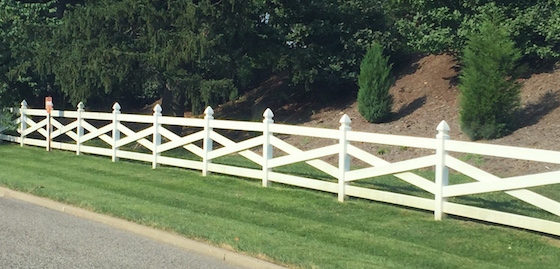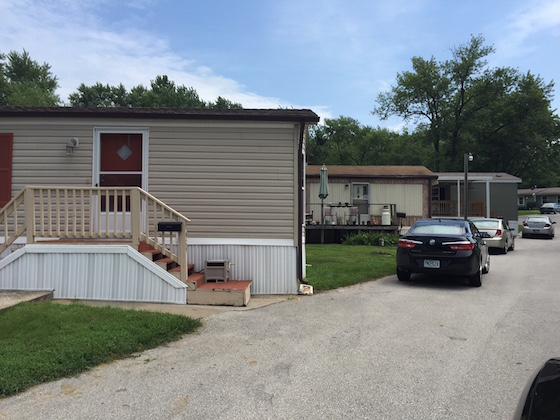This is a photo of a park that we have under contract. It is immaculate. And the reason is a manager who works 24/7 to keep it that way. I drove through it on a Saturday and the manager was out edging on a day and time that most managers would be sleeping. So where can you get a manager like that?
The difference between good and great is only about 10%
The difference between mediocre and spectacular is not that much. Many managers are able to get the job done reasonably well, but then drop the ball at the 10 yard line. The “great” manager goes the extra mile and puts in that little extra effort that makes the park so much tighter and well detailed. If you really think about it, something as simple as a piece of litter – like a McDonald’s sack – can ruin your impression of a manager. That’s a really minor item. So it’s those little items that separate the great from the average.
Hire people who fit the profile
Many of our managers come from within the park when we buy it. And they are selected because they have great looking houses and yards. Exceptional managers have basic habits and traits that you can spot from a mile away. I have never seen, in 20 years, a manager who is a perfectionist who lives in a home that is a dump, with a yard piled with debris. They say you can’t judge a book by its cover – well, in this case, they’re wrong.
Manage them effectively
Any manager will fail without proper direction. Communicate to the manager your expectations to get off on the right foot. But you can’t stop there. You need to communicate with the manager at least weekly, to let them know that you care about what they do and are excited about the property. You can do that either by phone, or with a written format. We use a system called the “Friday Facts” in which they list out move-ins, move-outs, and any other observations or happenings at the property. Another great way to manage the property from afar is to have the manager send you, at least monthly, a video of the park, or at least 50 photos from every angle, to demonstrate that at least the grass is mowed and the lots are in decent shape.
Let them know what you want them to do
If you go into a park that has no trash on the ground, no debris on the vacant lots, well-mowed grass, no weeds that have not been cut down, no grass or weeds growing in any paved area, and the streets well edged, the park will look fantastic. None of these items is that difficult or complicated. You just have to have that attention to detail. Continually remind the manager that it is unacceptable to have any of the above not completed. Let them know your expectations.
Challenge them to take it to the next level
Most people like a challenge, so give them one. Tell the manager that you want the park to be the “best park in town” and not just “another mobile home park”. Give them some type of small incentive to reward them for doing a great job, such as a dinner certificate at a nice restaurant. Most managers respond favorably to a “game” in which they try to beat your expectations. Be creative in your rewards and make it fun for both of you. Southwest Airlines has done a terrific job of motivating employees to be the best, and it’s paid off with the most on-time record of any airline. Follow their lead.
Do your best not to lose them
We have found that great managers often have certain duties that they are weaker on. Nobody is perfect. So try to work around their weak spots without forcing them to do things they don’t want to do, and are not good at. If your manager tells you that they are uncomfortable showing up in evictions court, for example, then hire a lawyer to appear. Or if they are not comfortable renting homes, then find someone else in the park to do that duty. The worst thing you can do is to lose a great manager because you burned them out doing duties that aren’t really even that critical to the park making money.
Conclusion
Great managers are a rare breed. When you get one, don’t lose them. Give them a structure to challenge and fulfill them. When you go to sell or refi, you’ll be glad you did.





